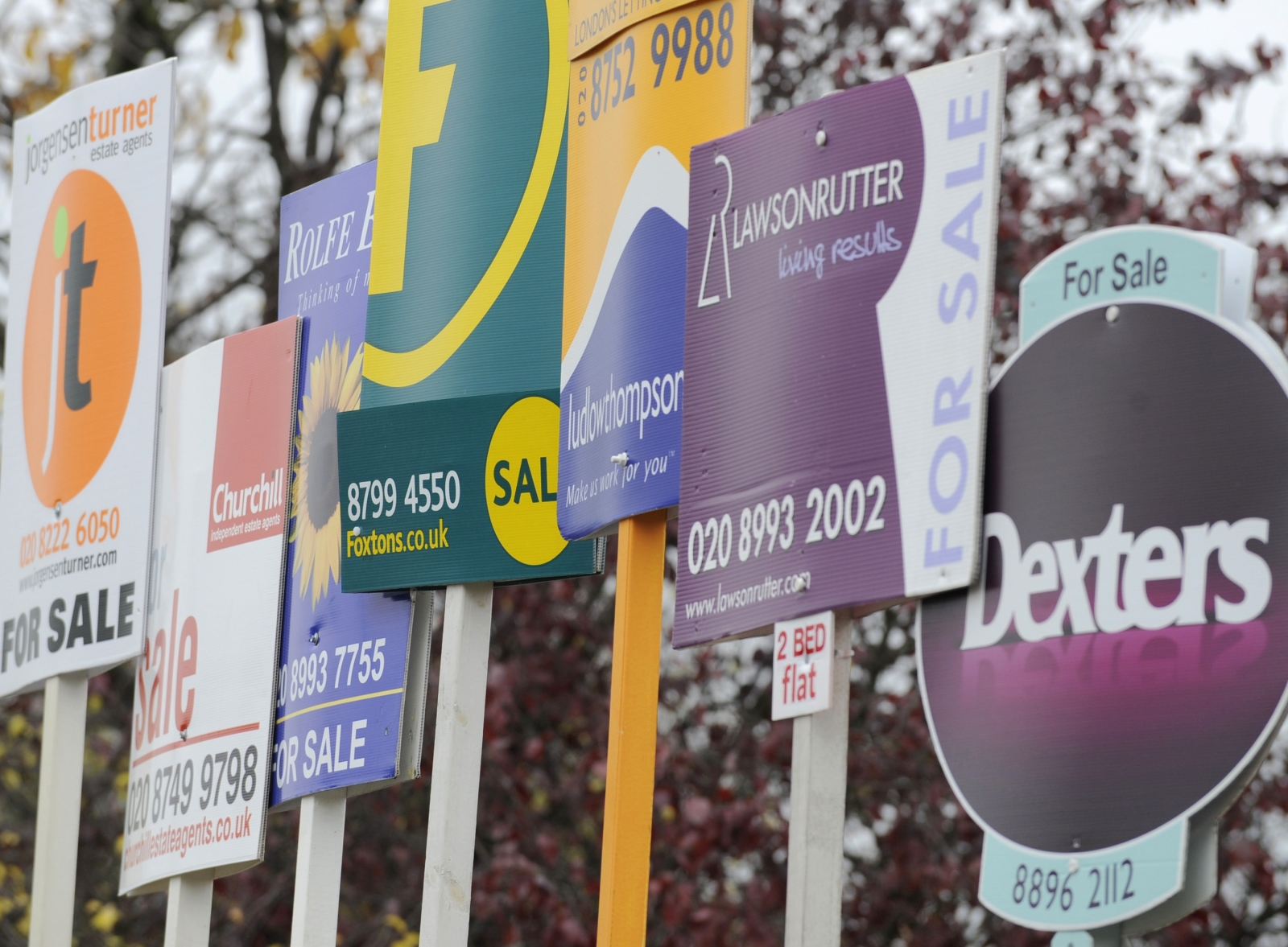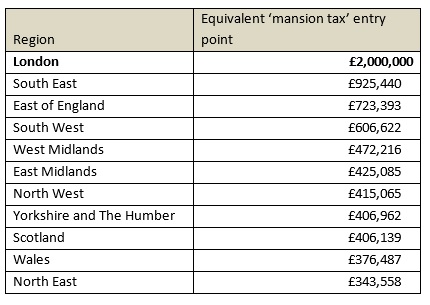
UK house prices: Why Labour's mansion tax would disproportionately hit pensioners and Londoners
01-21-2015
 By Lianna Brinded
By Lianna Brinded

British property prices have boomed over the past few years, with record highs been reached across the country.
While it has meant more money for Britain's balance sheet, it has been met with much ire from those who have been priced out the market and are still waiting to get on the housing ladder.
In the run-up to the general election in May, Labour has hoped to captivate the electorate with promises to slap on extra taxation for the so-called "wealthy" by raising the tax on properties valued above £2m (€2.6m, $3m).
The proposed mansion tax would result in those property owners being annually charged £3,000, while that bill could rise to £19,000 for more expensive homes.
But it has been met with fierce criticism from some members of the public and celebrities, who claim soaring UK house prices have involuntarily pushed their homes into a high price bracket.
Even Lord Mandelson, a former Labour cabinet minister, has called the pledge "crude" and "short-termist".
While some may blame Lord Mandelson's personal finance situation for his damning indictment over Labour's keystone pledge, he does have a point when it comes to raising a decent amount of tax for public services, as well as hitting the actual rich.
Why house prices are high
Market fundamentals and government schemes to stimulate the housing sector have collectively pushed property prices to record highs.
The Office for National Statistics showed the average UK house price stood at £271,000 (€339,695, $425,190) in October last year.
While this is a slight decline from £273,000 in September 2014 and £274,000 in August, it is unlikely to fall dramatically further as there is, and will be for a long time, a dearth in supply.
According to the Confederation of British Industry (CBI), 240,000 new homes need to be built per year to sate current levels of demand but in only four of the past 14 years have more than 200,000 homes been delivered.
The chronic shortage of supply and increasing demand has meant house prices, on average, have rocketed by 56% nationally since 2004, with a 90% increase in London.
Why mansion tax will hit everyone, not just the "rich"
Through no fault of their own, long-term homeowners (especially the older generation) who have owned and lived in their properties for sometimes decades, will be residing in a house that has significantly gone up in value since they bought it.
As the proposed tax would see people being charged annually, imagine your grandparents who had lived in their east London property for the last 30 years, were suddenly asked to dip into their meagre state pensions because along the way, the area had become popular and a mecca for hipsters.
For example, even in London's so-called "Murder Mile"- Upper and Lower Clapton Road in the east of the capital, which is famous for being the "deadliest road" in Britain - has seen house prices soar over the past few years.
A one-bedroom flat, according to data on property website Zoopla as of 20 January, shows an average asking price of £533,216 - more than double that of 20 years ago.
In other areas, such as East Dulwich in south-east London, which is next to Peckham, prices have more than doubled over the past two decades to reach more than £2m on average for a house. The typical one or two-bedroom flat can fetch over half a million pounds.
Even the Liberal Democrats, who had originally proposed a mansion tax before the 2010 general election, have ditched the idea and decided to review existing council tax bands to fairly assess who would need to pay more to the state.
London being disproportionately penalised
London is, of course, densely populated and with lack of supply and high demand, it is unsurprising that even a quarter of a million pounds would buy you little more than a one-bedroom flat in a decent area.

This has not only led to that 90% surge in prices over the past 10 years, it has meant longer-term homeowners, as detailed above, would involuntarily be stung with a hefty tax for simply staying in their home.
Demand is unlikely to quell, considering London's population is forecast to hit its highest-ever level in 2015, surpassing a pre-war peak of around 8.6 million. Furthermore, Knight Frank analysis shows 2.5% of London homes would be affected by a proposed 'mansion tax' on properties that are worth more than £2m.
In comparison, Knight Frank analysed 10 other markets to determine the top 2.5% by value and the equivalent "mansion tax" entry point in each, which has shown Londoners would bear the brunt for the proposed scheme (Figure 1).
"The data puts the London housing market and the disproportionate impact of a mansion tax into a national context," said Tom Bill, head of London residential research at Knight Frank.
"House prices have grown more in London than other regions in recent years but this reflects high demand and constrained supply more than wage growth or any greater capacity of London homeowners to pay tax.
"Furthermore, the data underlines the mismatch between the term 'mansion' and reality of property markets across the UK."
What does £2m actually get you?

TV presenter and musician Myleene Klass, along with others, may have been ridiculed for making comments that mansion tax is unfair but data shows her digest over what £2m looks like in the London property market is not as outrageous as it first seems.
"You may as well just tax me on this glass of water. You can't just point at things and tax them," said the former Hear'Say star, who challenged Labour leader Ed Miliband when they appeared on ITV's The Agenda.
"For me, it's so disturbing - the name in its own right: 'mansion tax'. Immediately you conjure up an image of these Barbie-esque houses, but in London, which is where 80% of the people who will be paying this tax actually live, have you seen what that amount of money can get you? It's like a garage."
According to Knight Frank's latest data, 38% of all £2m-plus properties in Greater London are flats, while only 14% are detached properties.
Terraced houses are the second-largest group at 36%, while semi-detached properties make up the remaining 12%.
London contributed 42% of all stamp duty revenue in England and Wales in the 2013/14 tax year, up from 41% in the previous year.
This is a far cry from so-called "mansions" that Labour has led us to believe that will be taxed extra.
So what next? Well, to echo Lord Mandelson's criticism over Labour's "crude and short termist" pledge to slap homeowners with the mansion tax, the government (past and present) should focus on creating more supply to even out the market.
Why plaster over the cracks when the foundations are shaky?

